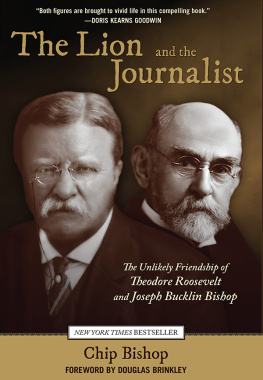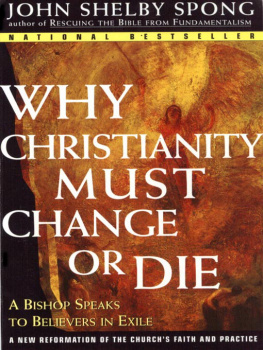CHAPTER I
INTRODUCTION
Table of Contents
Writers upon the late Civil War have never done full justice to the high religious character of the majority of those who composed the Confederate government and its army, and the high religious principles which inspired them. Not only was the conviction of conscience clear in the Southern soldiers, that they were right in waging war against the Federal government, but the people of the South looked upon their cause as a holy one, and their conduct of affairs, civil and military, was wholly in accord with such a view. The Confederacy, as it came into existence, committed its civil affairs, by deliberate choice, to men, not only of approved morality, but of approved religious character as well. It was not merely by accident, that, in the organization of its army, choice was made of such men as Robert E. Lee and Thomas J. Jacksonnot to mention a large number of other Christian soldiersas leaders. And it seemed in no way incongruous in the conduct of a war of such a character, that commissions were offered to and accepted by the Rev. William Nelson Pendleton, Rector of Grace Church, Lexington, Virginia, and the Rt. Rev. Leonidas Polk, D. D., Bishop of Louisiana.
A religious tone pervades the state papers pertaining to the Confederacyits proclamations, and its legislation. The same religious tone is conspicuous in a majority of the military leaders. It is found upon investigation to have impressed itself upon the officers of regiments and companies and upon the private soldiers in the ranks throughout the whole army. So that there is more than an ordinary basis for the statement, surprising as such a statement may appear at first, that the armies of the Confederate States had in them a larger proportion than any other in history since those of Cromwell's nicknamed "Roundheads," of true and active Christian men.
The provision made for the spiritual needs of the men in the field was quite remarkable. In the great haste with which the Army of the Confederacy was organized, equipped and sent to the field, there might have been found abundant apology for the omission of chaplains from the official staffs. Yet there was no need for seeking such an apology, for the chaplains were not overlooked. Even imputing a love of excitement and adventure to the young men who composed in such large measure the fighting forces of the Confederacy at the first, they did not neglect to secure the services of a chaplain for each regiment which went to the seat of war. It was naturally thought that work might be found for chaplains in the hospitals, but it was early discovered that a chaplain had opportunities for efficient work at all timesin the midst of active campaigns and when the army was in winter quarters.
Nor was their work in vain. Few religious services in times of peace equalled in attendance, in fervor or results, those held at, or in the immediate vicinity of, encampments of the Confederate army. The camps of regiments which had been sent forth with prayer and benediction, were often the seats of earnest religious life. It is estimated that 15,000 men in the Army of Virginia alone, made some open and public profession of their allegiance to Christ during the war, and were affected in their subsequent lives by religious experiences gained in the war. And the number is especially remarkable of men in the Southern army who after the close of the war entered the sacred ministry and won distinction in their holy calling.
A study of what might be called "the religious phases" of this war history should be approached through a consideration of the chaplains of the Confederacy. They were a regimental institution, and their number might be determined by the number of regiments engaged in the war. They were, for the most part, men of brains, of a keen sense of humor, and of fidelity to what they regarded as their duty; sticking to their posts; maintaining the most friendly and intimate relations with "the boys;" ever on the look-out for opportunities to do good in any way; ready to give up their horses to some poor fellows with bare and blistered feet and to march in the column as it hurried forward; going on picket duty with their men and bivouacking with them in the pelting storm; sharing with them at all times their hardships and their dangers, gaining a remarkably wide experience during four years of army life, and probably with it all acquiring the pleasing art of the raconteur.
If an individual were desired for a more particular illustration of the religious phases of Confederate war history, he might be found in the Rev. Charles Todd Quintard, M. D., of the First Tennessee Regiment, and after the war, Second Bishop of Tennessee. He not only fully conformed to the type above indicated but in some respects he surpassed it, for his knowledge of the healing art and his surgical skill were ever at the demands of his fellow soldiers. He was one of the earliest to enter the service of the Confederate army, and was probably the most widely known and the best beloved of all the chaplains.
Dr. Quintard was born in Stamford, Connecticut, on the 22nd of December, 1824. His ancestors were Huguenots who left France after the revocation of the Edict of Nantes and settled the country north of Manhattan Island, between Long Island Sound and the Hudson River. Those who knew Dr. Quintard at any period of his life had no difficulty in detecting his French ancestry in his personal appearance, as well as in his mannerhis vivacity and demonstrativeness. Though not a few who failed to get well acquainted with him fell into the error of supposing that some of his mannerisms were an affectation acquired in some of his visits to England subsequent to the war.
His father was Isaac Quintard, a man of wealth and education, a prominent citizen of Stamford, having been born in the same house in which he gave his son a birthplace, and in which he died in 1883 in the ninetieth year of his age. The Doctor was a pupil at Trinity School, New York City, and took his Master's degree at Columbia College. He studied medicine with Dr. James R. Wood and Dr. Valentine Mott, and was graduated, with the degree of Doctor of Medicine, at the University of the City of New York, in 1847. After a year at Bellevue Hospital, he removed to Georgia, and began the practice of medicine at Athens in that state, where he was a parishioner of the Rev. William Bacon Stevens, afterwards Bishop of Pennsylvania.
In 1851 he accepted the chair of Physiology and Pathological Anatomy in the Medical College of Memphis, Tennessee, and became in that city co-editor with Dr. Ayres P. Merrill, of the "Memphis Medical Recorder." There also he formed a close friendship with Bishop Otey, and in January, 1854, he was admitted a candidate for Holy Orders. That year he appeared in the Twenty-sixth Annual Convention of the Church in the Diocese of Tennessee, held in St. John's Church, Knoxville, as the lay representative of St. Paul's Church, Randolph. St. Paul's Church has since passed out of existence, and the town of Randolph no longer appears upon the map of the State of Tennessee.
Studying theology under the direction of his Bishop, he was ordered deacon in Calvary Church, Memphis, in January, 1855, and a year later was advanced to the priesthood. His diaconate was spent in missionary work in Tipton Countyone of the Mississippi River counties of Tennessee. Upon his advancement to the priesthood he became rector of Calvary Church, Memphis.











